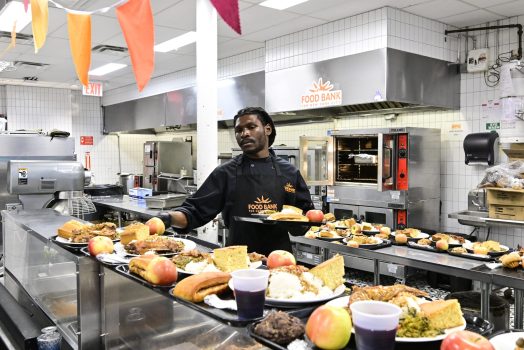
In just the first few days of the second Trump administration, we’ve seen an onslaught of dangerous and discriminatory policies. Not surprisingly, this includes attacks on religious freedom.
On Day 1, President Donald Trump repealed an important executive order signed by President Joe Biden that laid the groundwork to protect the religious freedom of people who rely on government-funded services like food banks, homeless and domestic violence shelters, job training, and elder care. The rules implementing Biden’s executive order helped ensure that people in need would not be pressured to participate in religious activities or required to meet a religious litmus test to get critical services.
To understand the full picture we need to go back to the first Trump administration, which put in place regulations that stripped away religious freedom protections from people, often vulnerable and marginalized, who rely on government-funded social services. Rather than focusing on serving people in need, the regulations instead elevated the religious interests of taxpayer-funded organizations, some of which receive millions of dollars each year of government money.
The Biden administration understood that no one should have to give up their religious freedom rights in order to get critical services. That’s why Biden signed his executive order and overturned the harmful Trump regulations, restoring religious freedom protections for people using these services.
But with the stroke of his magic marker, Trump has now shown the country he intends to dismantle these vital religious freedom protections. This unfortunate policy pendulum has real consequences by making it harder for people to get the services they need.
One question during the confirmation hearing for Scott Turner, President Trump’s nominee for secretary of Housing and Urban Development, illustrates what’s at stake. Sen. Jim Banks (R-Ind.) asked whether Turner would remove “barriers” to allow employees at faith-based government-funded soup kitchens or homeless shelters to pray before meals.
What Banks calls a “barrier” is in fact an important safeguard that protects the religious freedom of both the people who use social services and the taxpayers that fund them. Imagine not being able to afford food for your family and going to a soup kitchen, but before you can get a meal for your kids, an employee pulls your family aside to pray. You are faced with the choice to pray or walk away from the food. Even if you share the faith of the religion running the soup kitchen, it’s coercive. But it’s even worse if you follow another faith or are non-religious – the meal becomes an opportunity for the taxpayer-funded provider to proselytize and pressure you to, for example, pray and accept Jesus.
To state the obvious, the “barrier” Banks references is the U.S. Constitution. The separation of church and state ensures that a government-funded program cannot include prayer or religious activities. This fundamental constitutional principle protects people’s religious freedom and ensures they get the services they need.
We know we’ll have our hands full in the weeks, months, and years ahead, and we’re ready for the challenge. Click here to learn more about how AU is gearing up to fight back and fight forward.